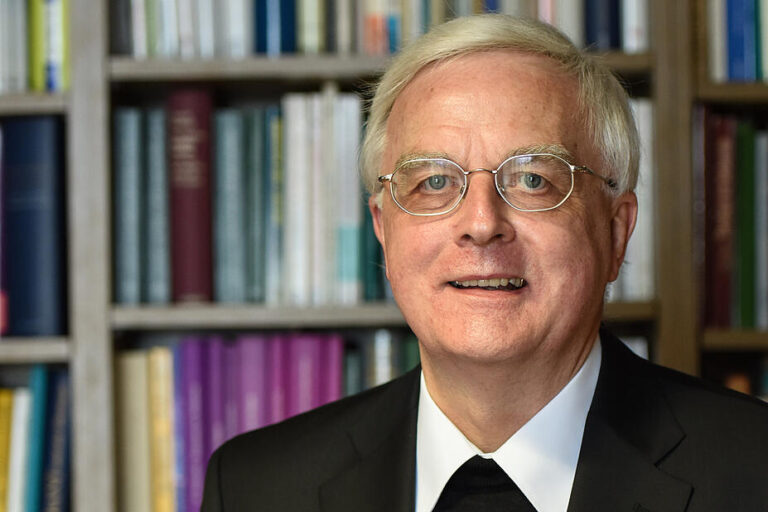Current Catholic reform issues must focus more on fundamental problems, according to the theologians Karl-Heinz Menke and Magnus Striet.
The Synodal Path reform consultations underway in the Catholic Church in Germany were treating the symptoms but not the deeper internal Church differences, Menke, a member of the Vatican’s International Theological Commission, said in a debate hosted by the University of Bonn on Tuesday evening.
The theologian Striet agreed with the diagnosis. However, the professors differed on the significance of Church doctrinal statements in today’s world. Menke is considered a critic of the Synodal Path while Striet is in favour of it.
“It is about the question of which human right, which idea of freedom may exist in the realm of the Catholic Church? That is the crucial point,” Striet said. There were reasons why the Vatican had not signed the United Nations Charter on Human Rights to date, he said. The decisive conflict on the Synodal Path was whether the Catholic magisterium could really go along with the latest shift in the modern view of freedom. If the Church did not accept the right to self-determination, it was launching an “all-out attack on liberal democracy”.
The Bible itself was an expression of a constant process of enlightenment, Striet said. The current Church crisis was essentially connected to the fact that this biblically demanded process of enlightenment was “put to death” by the magisterium in the 19th century. At present, the Church was experiencing a correction by people who were no longer convinced by the statements of the magisterium. This was accompanied by a loss of the authority of the Church ministry.
Menke, on the other hand, emphasised the necessity of Church dogma, i.e. normative doctrinal statements. They were “irreversible interpretations of the Holy Scriptures” that could be understood more deeply and reformulated in the course of time, but could not be undone. If the historical Jesus was not just a “catalyst or messenger” but God, “then Jesus as a creation and as a historical fact must have had a meaning that was not produced by us, his addressees.”
Menke also warned that a society in which not enough people believed in God was in danger of sliding into extremes. This could be seen, for example, in the current discourse on abortion in Germany, where there was currently no Church counterweight to the demand for liberalisation of the laws. It was true that in state-moderated discourses all people must abide by the same rules. But the Church was allowed to demand “a more normative attitude” from its members, as long as this did not contradict human rights.
The dean of the Faculty of Catholic Theology in Bonn, Jochen Sautermeister, said more debates between opposing positions, such as that between Striet and Menke, were needed. The Synodal Path was raising tempers to such an extent that factual argument was being displaced by polemics. Theology, however, should not fall silent or disappear into “self-referential echo chambers” but needed interdisciplinary exchange.
*Originally reported by KNA Germany.



